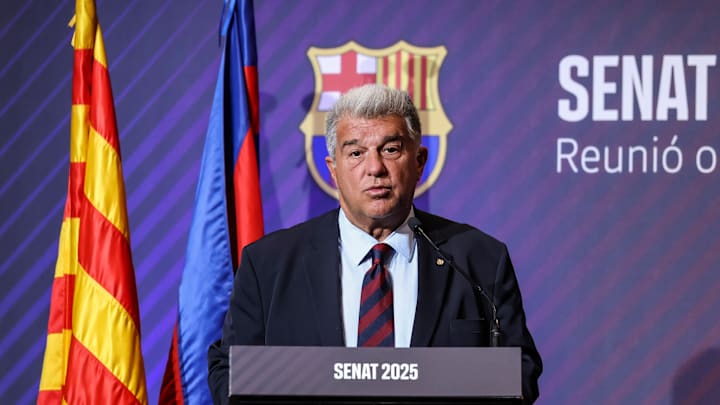The Club World Cup is officially underway in the United States, with European powerhouses like Bayern Munich and Paris Saint-Germain already making their mark with impressive victories. Yet, a glance at the tournament roster reveals some notable absences. We're not talking about the likes of Liverpool or Manchester United, but rather one of football's most globally recognized clubs: Barcelona.
Interestingly, after Club León's withdrawal, reports emerged that Joan Laporta petitioned FIFA for a special entry into the tournament. Their request was ultimately denied, as their participation didn't meet the established criteria for the competition.
The tournament rules stipulate that only two clubs from the same nation can qualify. For Spain, those spots went to Real Madrid and Atlético Madrid. These selections were based on UEFA's coefficient table, a ranking that saw Barcelona drop to third among Spanish clubs after their unusual three consecutive group stage exits from the Champions League between 2021 and 2023.
While the £1 billion prize pot, along with a reported £100 million for the winner, is undeniably tempting and could help resolve many of Barcelona’s financial challenges, there’s also a sense of relief among both the players and the Culers that the club won’t be participating in the inaugural edition. With an already demanding schedule and ongoing restructuring on and off the pitch, sitting out this high-stakes competition may offer some much-needed breathing room.
Competing in the tournament until the final on 13 July leaves little time for the essential break elite players need after performing at such high levels. Sports scientists widely recommend a rest period of 3–4 weeks to maintain peak performance and reduce the risk of injury over a long season.
If the finalists follow that guidance, their players wouldn’t return to training until early August,just a week before La Liga kicks off on the weekend of 17 August. That severely limits any chance of a proper pre-season, which is vital for fitness, tactical preparation, and overall squad cohesion. Skipping or shortening this phase could have long-term consequences on form and injury risk across the campaign.
The break also allows Barcelona to focus entirely on their core objectives: reclaiming domestic success and making a deeper run in the Champions League. In a season of transition, stability and preparation may prove more valuable than chasing an extra trophy, especially one that could derail their long-term ambitions.
With a full pre-season under new boss Hansi Flick and fewer physical demands over the summer, Barcelona will be better placed to hit the ground running. While their rivals may be battling fatigue and last-minute preparations, Barça have a golden opportunity to begin their domestic campaign strong and sharp.
In a tight title race, that early edge in energy, clarity, and cohesion could make all the difference. Lets wait and see if it can make the ultimate difference.
